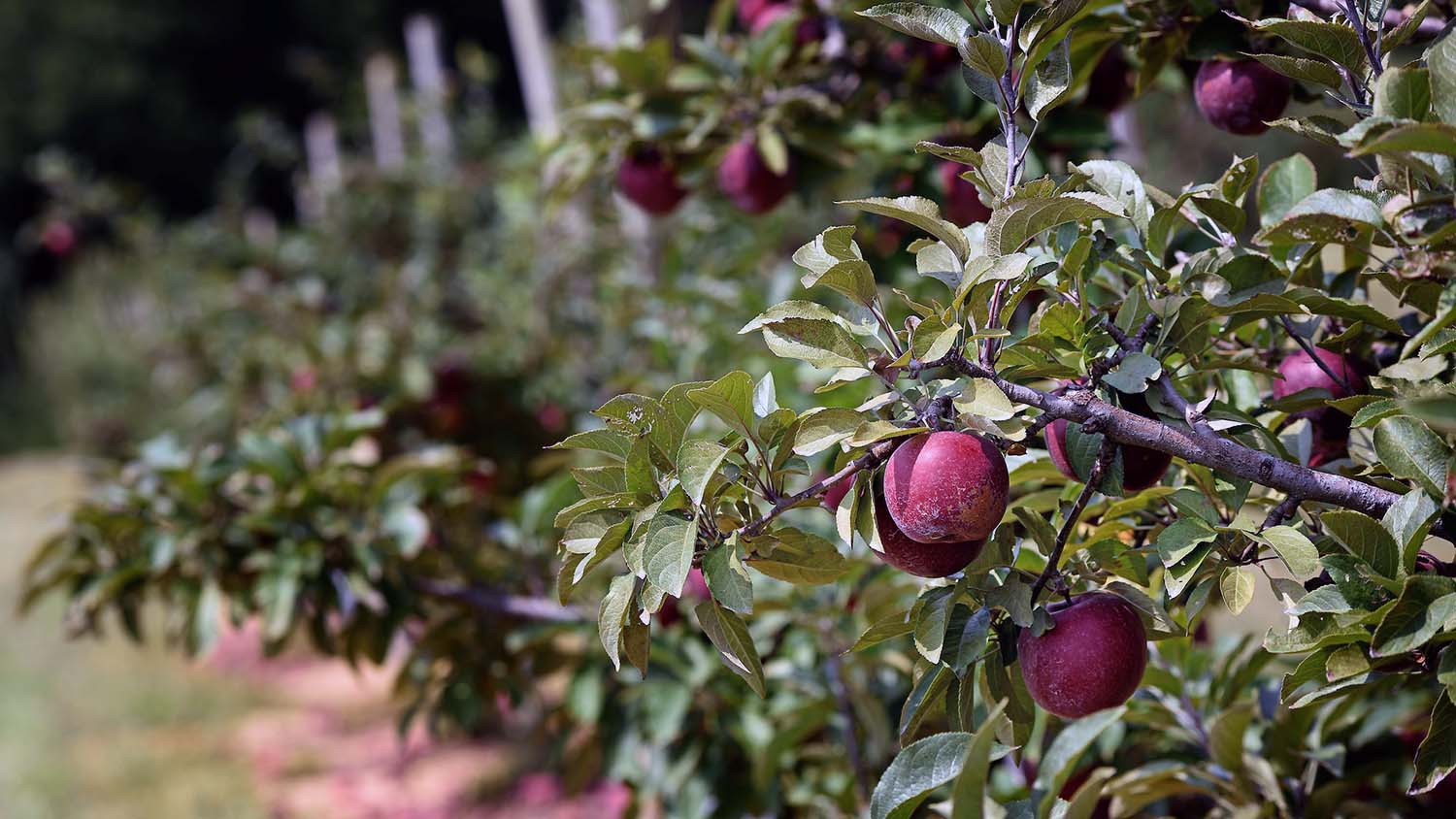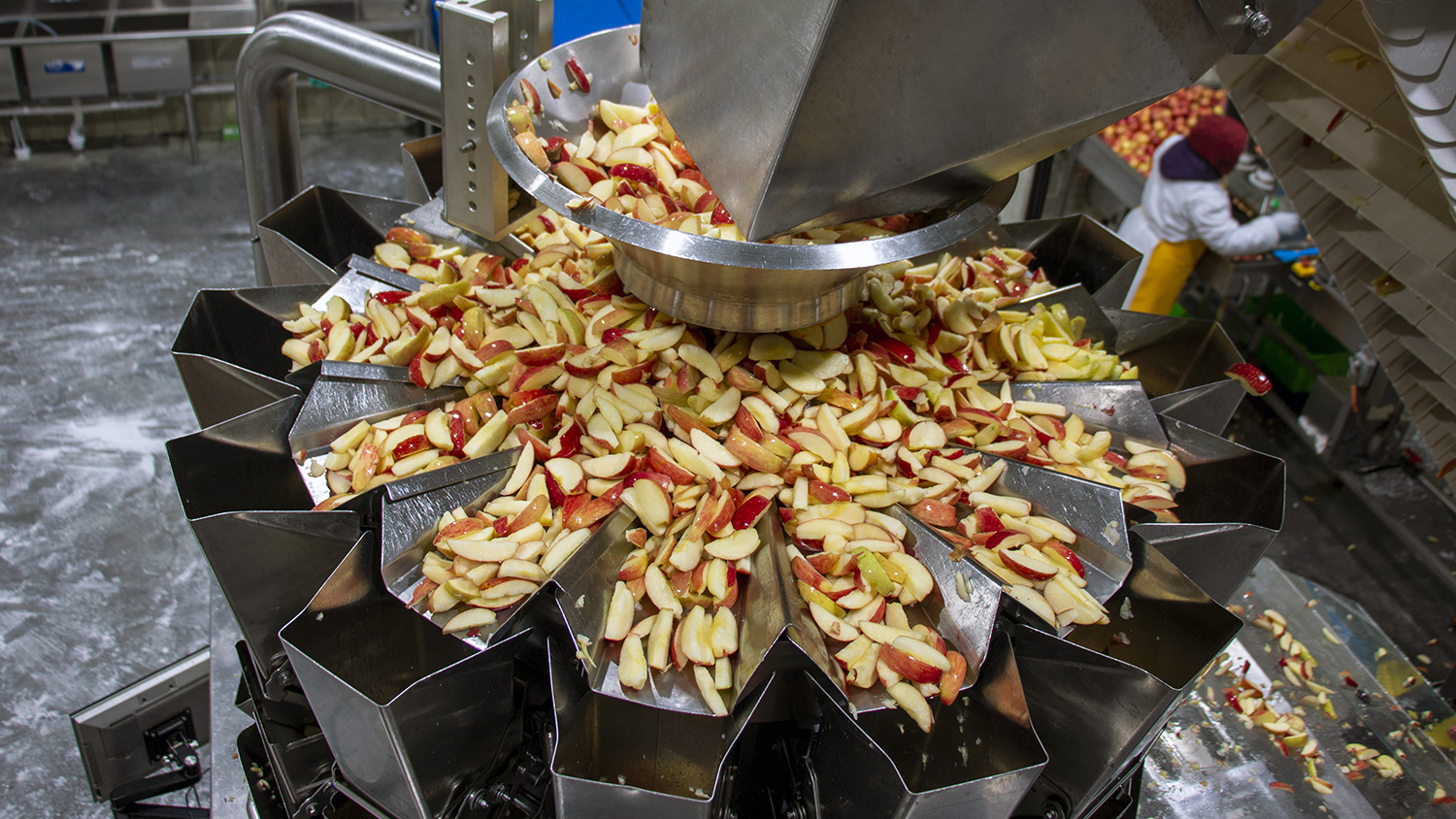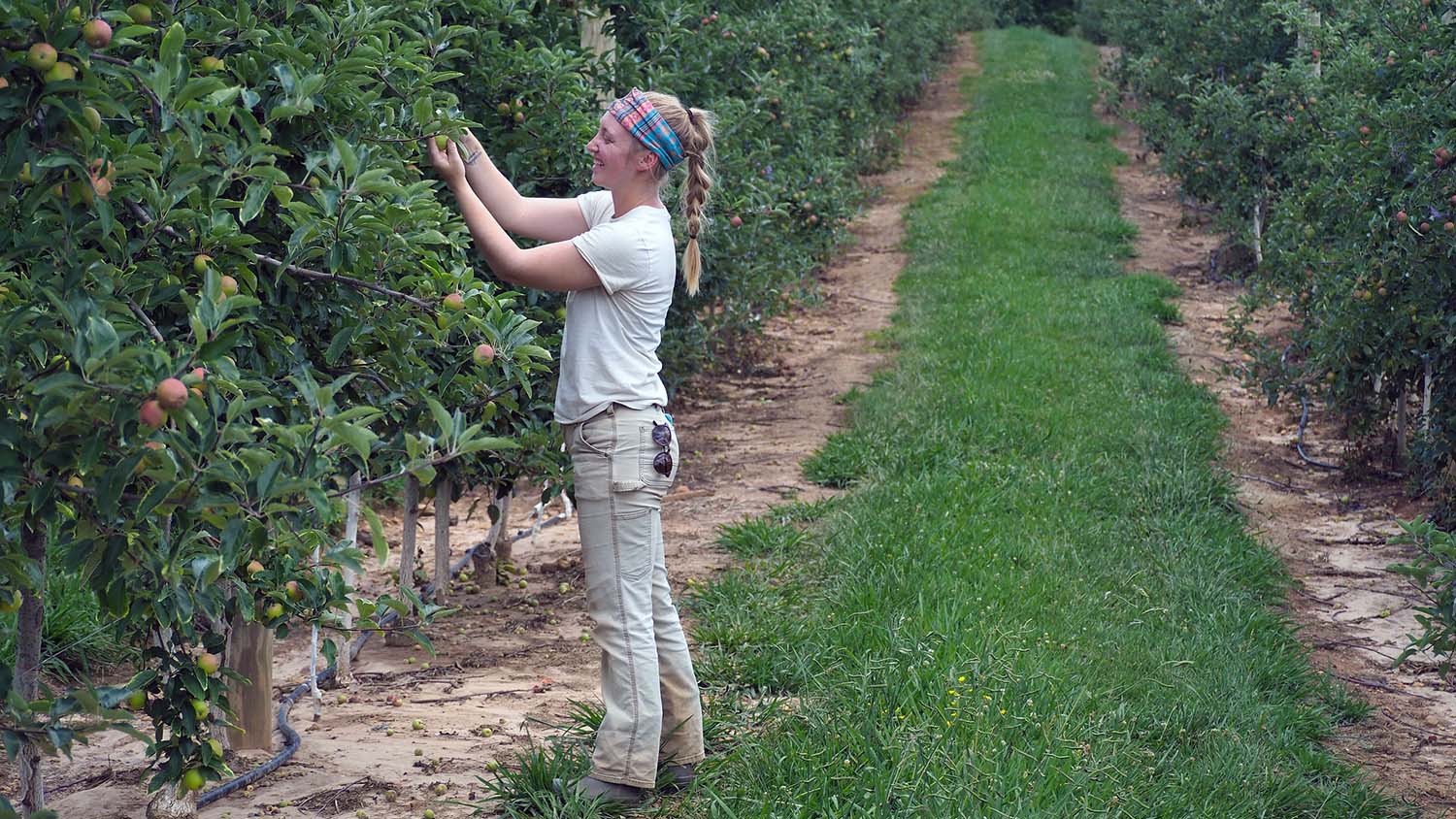Hope After Helene: Extension Promotes Resilience, Renewal for N.C. Apple Growers
go.ncsu.edu/readext?1040210
en Español / em Português
El inglés es el idioma de control de esta página. En la medida en que haya algún conflicto entre la traducción al inglés y la traducción, el inglés prevalece.
Al hacer clic en el enlace de traducción se activa un servicio de traducción gratuito para convertir la página al español. Al igual que con cualquier traducción por Internet, la conversión no es sensible al contexto y puede que no traduzca el texto en su significado original. NC State Extension no garantiza la exactitud del texto traducido. Por favor, tenga en cuenta que algunas aplicaciones y/o servicios pueden no funcionar como se espera cuando se traducen.
Português
Inglês é o idioma de controle desta página. Na medida que haja algum conflito entre o texto original em Inglês e a tradução, o Inglês prevalece.
Ao clicar no link de tradução, um serviço gratuito de tradução será ativado para converter a página para o Português. Como em qualquer tradução pela internet, a conversão não é sensivel ao contexto e pode não ocorrer a tradução para o significado orginal. O serviço de Extensão da Carolina do Norte (NC State Extension) não garante a exatidão do texto traduzido. Por favor, observe que algumas funções ou serviços podem não funcionar como esperado após a tradução.
English
English is the controlling language of this page. To the extent there is any conflict between the English text and the translation, English controls.
Clicking on the translation link activates a free translation service to convert the page to Spanish. As with any Internet translation, the conversion is not context-sensitive and may not translate the text to its original meaning. NC State Extension does not guarantee the accuracy of the translated text. Please note that some applications and/or services may not function as expected when translated.
Collapse ▲When Terry Kelley was able to get out and about in the aftermath of Hurricane Helene, the analytical part of his brain was busy examining and cataloging the devastation wreaked by the terrible storm.
Kelley is the director of the NC State Extension center in Henderson County, and the tree fruit agent. North Carolina is No. 7 in the nation in apple production and about 85% of the state’s apples are produced in the county, so it was critical to assess the damage and determine how he could best help area growers.
Related: Apples are big business in North Carolina
But while he was inspecting the damage to crops, his mind kept going to the hurricane’s impact on the people he’s come to know in his seven-plus years as an agent in the county.
“Knowing these growers and having a relationship with them and seeing something like this is hard to take,” he said. “You go see a grower who has just had his whole orchard wiped out — it’s tough.”
NC State Extension agents bring a high level of expertise to their roles. They can be counted on to provide cutting-edge, research-based knowledge to improve the lives of North Carolinians from the coast to the mountains.
County agents also live in the region where they work. The people they help, the people they interact with on a daily basis, are their friends and neighbors.
“I know these people,” Kelley said. “They’re my friends. Just knowing what they’re going through personally, it starts to wear on you. You help with what you can, and try to make a difference in their farms and in their lives.”

Some 20-30% of the annual apple crops was lost to Hurricane Helene. NC State Extension experts are helping connect growers to immediate relief while working to mitigate the damage for future harvests.
Hurricane Helene swept through Western North Carolina in late September, bringing record rainfall, historic levels of flooding, and tens of billions of dollars in damage. Roads were washed out, and homes were destroyed. The combination of strong winds and heavy rains toppled trees and power lines.
The apple crop was not spared from Helene’s destruction.
“We lost trees in some places, and had a lot of apples blown off,” Kelley said. “We probably lost 20-30% of the overall crop. Some growers lost product that had already been harvested because the power to their coolers went out. We had several thousand bushels lost from that.”
Read more: Extension plays a vital role in hurricane recovery
Late September is peak apple season in the North Carolina mountains. Growers are about halfway through the year’s harvest. Their tasty, nutritious wares are sold at roadside stands to the profusion of tourists who make an annual trek to the state’s highlands to see fall color.
The storm’s timing couldn’t have been worse. Not only was a significant portion of the season’s harvest lost, but damaged roads and dangerous conditions impacted the ability to sell what had been picked.
“Our direct markets that sell from roadside stands have basically 12 weeks to make whatever money they’re going to make during the year,” Kelley said. “Some of them lost three of the peak weeks. You take the last week in September and the first couple of weeks in October, you’re talking about lots of tourists here going to a lot of those apple stands. They lost a significant portion of their sales.”

Apples from Henderson County are enjoyed throughout the region, including as a healthy addition to school lunches. Crop losses from Hurricane Helene will impact the bottom line of many businesses.
In 2021, the combination of freeze damage early in the year and flooding from Tropical Storm Fred in August brought similar levels of crop loss. But the damage from Helene is unprecedented in Kelley’s time in Henderson County.
“We didn’t have the destruction of farmland and buildings and equipment in 2021 that we have right now,” he said. “We looked at some fields in Mills River that had holes washed in them that you could drive a bus through, that went from one end of the field to the other. I’ve got one grower who lost an entire orchard that he had just gotten to full maturity about three years ago. I don’t know that there’s anybody alive that’s ever seen anything like this.”
In the aftermath of the storm, the main task was to connect growers who suffered major losses with entities that could provide immediate relief. Kelley and other Extension experts gathered information on crop loss and damage to land and infrastructure on farms, and submitted that information to state and federal authorities.
“Some of these losses will be covered by programs that are already in place. Some growers will have insurance that will cover some of the losses,” Kelley said. “We’re trying to bridge that gap.”
Related: NC State Extension resources for Hurricane Helene recovery
While such programs can help in the short-term, full recovery from the hurricane is much more of a long-term issue. It takes five to seven years for an apple tree to reach maturity and full production.
“This is going to be a multi-year loss,” Kelley said. “We lost a lot of trees that were at maturity and some of them probably had another 10 to 15 good years of harvest in them.”
The impact is likely to be minimal on consumers. There is a surplus of apples in Washington state, so the fruit will continue to be plentiful in area grocery stores and across the state. In North Carolina, crop loss because of fallen trees is estimated to be closer to 10% next year so production will be closer to normal levels.
But a 10% loss is still significant for growers who operate on slim profit margins, and it will be worse for those who lost entire orchards. Some producers might never recover from Helene.
“I think there’s a distinct possibility of that, particularly some of the smaller and mid-sized growers,” Kelley said. “And some of the older growers might just say, ‘I don’t have enough time left to get things back up to where I want them to be and I’m just going to give it up at this point.’ When we go into next spring, there’s a good chance we’ll have a few less growers than we started with this spring.”

Extension experts will help growers in Western North Carolina recover from Hurricane Helene by sharing research from NC State’s College of Agriculture and Life Sciences.
Kelley will do what he can to help the industry recover by sharing the latest research from NC State’s College of Agriculture and Life Sciences in variety timing, blooming, rootstocks, tree spacing and density. Applying new techniques might enable some orchards to eventually improve their yields.
While the future outlook might be positive, it doesn’t lessen the pain in the present. The laws of nature dictate that apple trees take a few years to start producing fruit.
“[Growers] want it fixed now, we want it fixed now, and we want to help them now. But in some ways the best we can offer is hope for the future,” Kelley said.
That hope will be personified in Extension experts like Kelley who are out in the community, offering not just expertise and help but also compassion and understanding for their neighbors who are suffering in the aftermath of the storm.
“I’m glad we’re here to help. I’m glad Extension is part of this process,” Kelley said. “It is heartbreaking, but yet heartwarming at times as well when you’ve helped somebody that has a dire need. We wouldn’t be in a position to do this if we weren’t part of Cooperative Extension. That’s just another reason why our county office system is so important. We can be boots on the ground on an immediate basis.
“We’re all working together with people who have been impacted at various levels of degrees. We understand, you know. We understand.”

